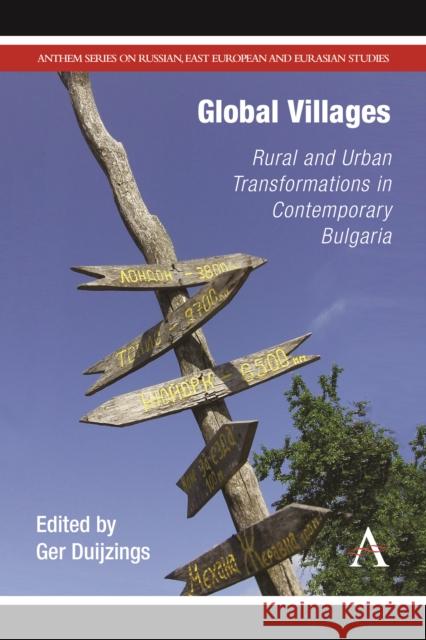Global Villages: Rural and Urban Transformations in Contemporary Bulgaria » książka
Global Villages: Rural and Urban Transformations in Contemporary Bulgaria
ISBN-13: 9780857280732 / Angielski / Twarda / 2013 / 222 str.
Global Villages: Rural and Urban Transformations in Contemporary Bulgaria
ISBN-13: 9780857280732 / Angielski / Twarda / 2013 / 222 str.
(netto: 341,60 VAT: 5%)
Najniższa cena z 30 dni: 356,48
ok. 30 dni roboczych.
Darmowa dostawa!
This book explores the multiple effects of globalization on urban and rural communities, providing anthropological case studies from postsocialist Bulgaria. As globalization has been studied largely in urban contexts, the aim of this volume is to shift attention to the under-examined countryside and analyse how transnational links are transforming relations between cities, towns and villages in Bulgaria. Since the opening of borders after the end of socialism (1989) and Bulgaria s EU accession (2007), rural communities have been drawn into new transnational connections and global shortcuts that transcend the framework of the (formerly socialist) nation-state. The case studies of this volume demonstrate that apart from cities, villages and towns are also increasingly exposed to global flows and economic inequalities, resulting in the remaking of rural places. As a result of increased mobility and growing transnational and global connections, boundaries are fading between cities and the countryside and between Bulgaria and Europe. Some Bulgarian villages are winners while others are losers as a result of this development, leading to a situation of extreme rural diversity. This book aims to challenge undifferentiated notions of the countryside, calling for a greater awareness of rural economic and social disparities which are often only associated with urban environments. It also focuses on how the urban and rural have been reconfigured in Bulgaria following the end of socialism and the advent of globalization, in socioeconomic as well as political, ideological and cultural terms. The volume is based on a collection of papers presented at a workshop that took place at the UCL School of Slavonic and East European Studies on 29 and 30 May 2008."











